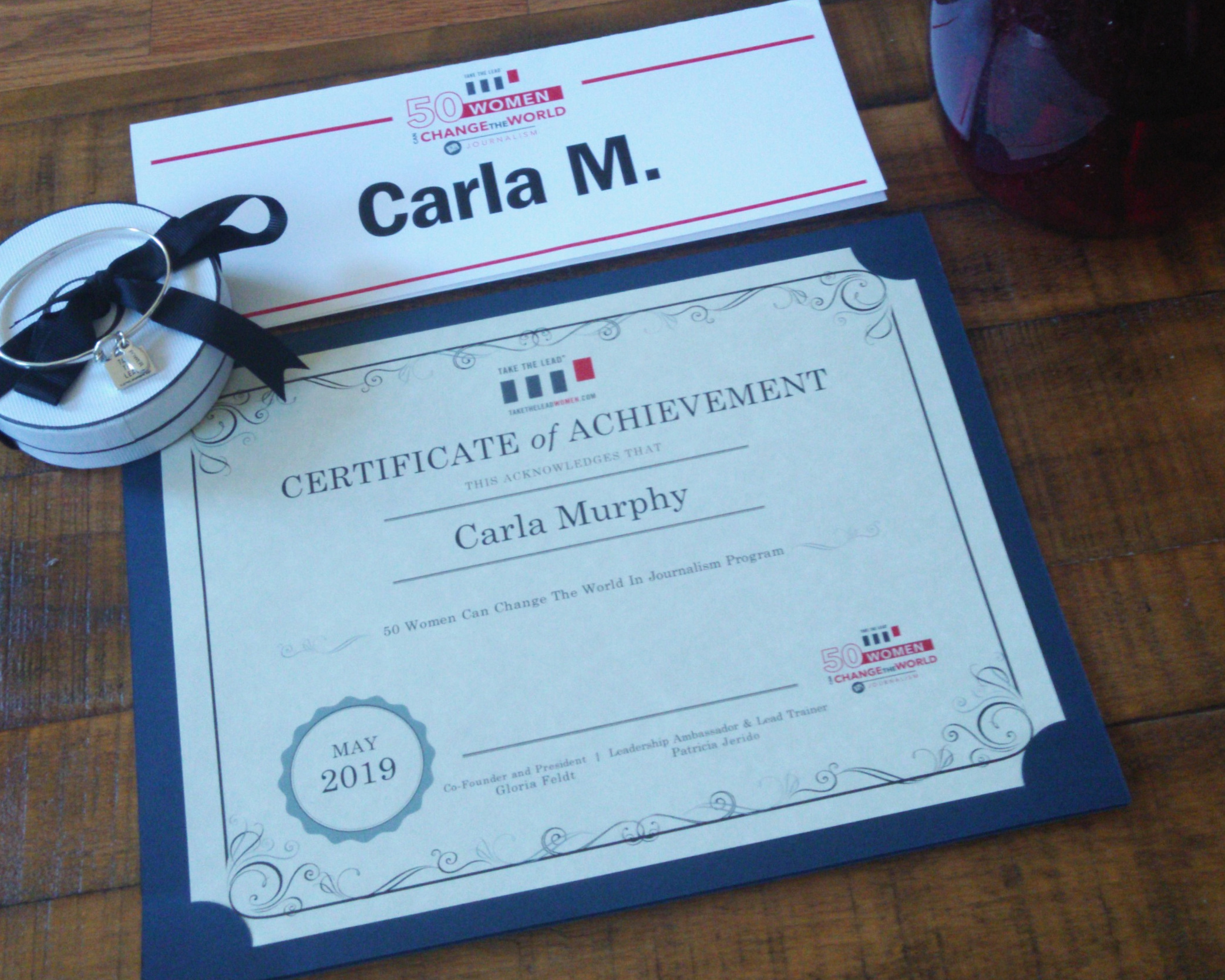Day 1 in a series of “reflections” after participating in Take the Lead’s #50WomenCan 4-month leadership program to achieve gender parity in specific industries. Along with 49 women from across the U.S., I belong to the first journalism cohort. We graduated on May 10th.
The thing I’ve struggled with most as a storyteller is knowing and telling my own story. I could apply craft, technique, framing and big-picture thinking to everyone and everything else but myself. This was a mighty problem.
A personal Web site is the standard calling card of any media worker, for example, whether scrambling along the cliff-side of the gig economy or safely nooked into a staff position. Mine had always been a hybrid of the usual “what I do” with, to my mind, a stock-photo version of “who I am.” It told true facts validated by working professionals: born here, schooled there, live here, won that. But those details didn’t communicate the information I valued: the journey I’d traveled just to get into (and remain in) journalism. That journey was the source of my power, motivation, expertise, vision, and forward direction. I didn’t put that all together, though, not till Take the Lead’s #50WomenCan Change the World in Journalism leadership program this February. It was my first such professional development in a nearly decade-long career.
What surprised me most, then and now, was the program’s emphasis on knowing your personal history because it is your source of power and therefore, key to leading within your industry. A 3-minute video broadcasting our personal “Power To” stories was required for graduation. So we 50 spent a lengthy session, for example, sketching our histories on Post-It wall pads to share in a public gallery walk. For a professional setting, some of us got pretty personal. I thought, these details would never surface during after-work drinks at the local pub.
Sharing the life events that shaped me, with colleagues, was new. My journey to professional journalism belonged to ‘home,’ not work--and I had learned as a child watching my own single, working mother to separate the two. Curious, though, I sketched my journey on my Post-It. And whatever went down on that Post-It is what #50WomenCan saw as key to my professional advancement. Reframing my journey was a major shift for me--and one I still see as risky for two reasons.
One, I wouldn’t describe my industry as inclusive of experiences/ways of seeing the world that differ from its norm: white, comfortably middle-class or wealthy. My identity--immigrant, first-generation college, black woman, poor/working-class from a rural family--makes my journey to journalism distinct from my professional peers. I’m typically the only one with my background in the room. Folks like me appear as subjects of news stories, but rarely are we the storytellers, i.e. reporters, opinion writers or newsroom leadership. In a way, I am “out of my proper place”.
Two, according to the informal whisper network among immigrants and black professionals, assimilation and code-switching, respectively, are standard survival tactics in corporate America. Sharing yourself and your culture at work, where managers warm to and groom the ‘familiar’, isn’t advised. Given the reasons above, chances are high that highlighting your difference might invite blowback.
I decided, though, that while I’m uncomfortable with the risk, I’m taking it anyway. That’s what leaders do, right? My voice shook as I shot my 3-minute video, telling my personal story aloud for the first time in front of a watchful and supportive audience of women. But, I did it. That’s what counts. Turns out, I had the building blocks of my story all along, and #50WomenCan helped me to actualize it. I have a new Web site, now, which I’m still tweaking. And it seems counter-intuitive, but it takes effort to know your own story. It took me 4 months, 2 coaching calls, 2 group video chats, an intense 12-question leadership plan, brainstorming sessions and feedback from my #50WomenCan cohort to come up with mine. Talking aloud to myself while riding the train became a regular thing.
Your personal story is the source of your power. As Gloria Feldt, the program’s founder, might say, never leave your power on the table.
***
I invite readers to connect with me as I share #50WomenCan reflections over the next couple of weeks. I’m curious: do you also hesitate to share your personal stories with work colleagues? How can we create workplaces that are inclusive? That welcome, but don’t fetishize, difference? Talk to me.
